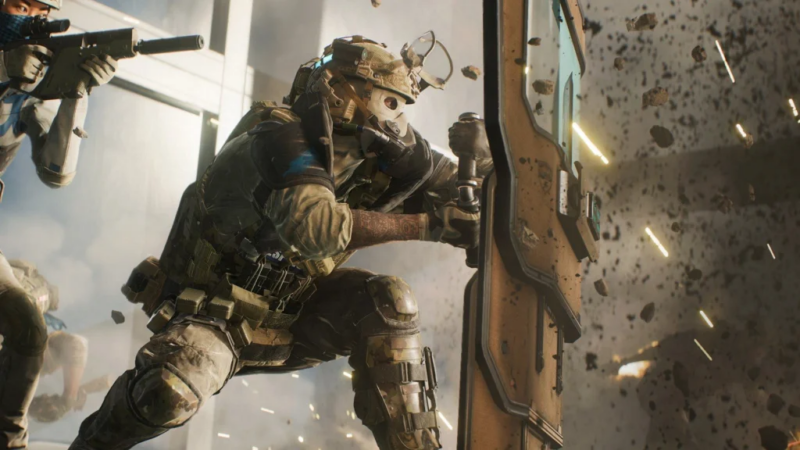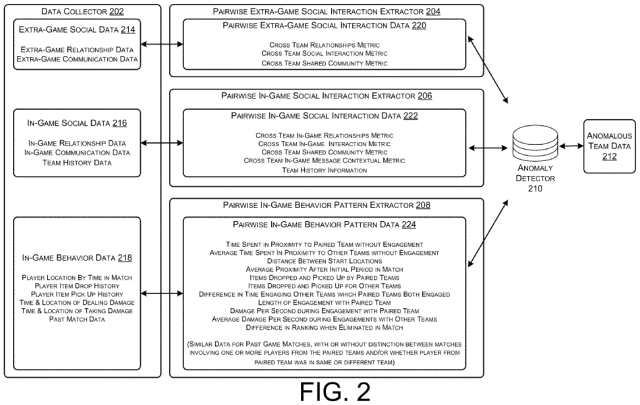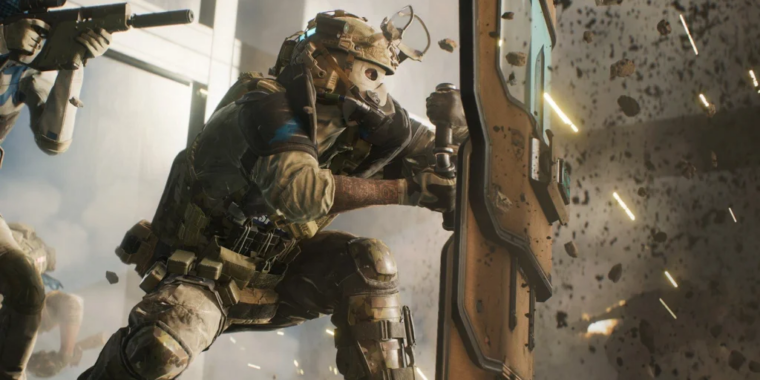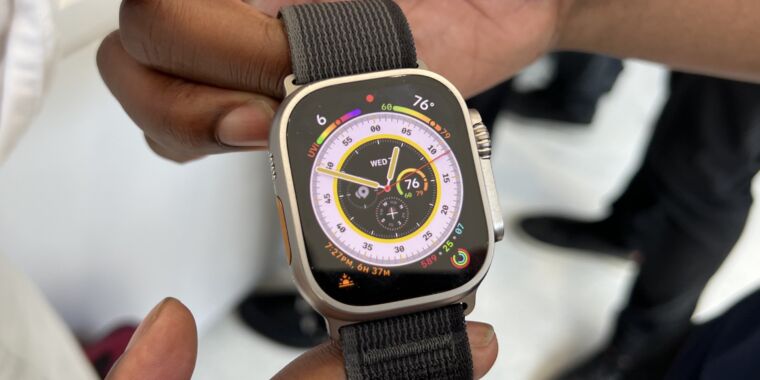
Do you ever feel like your opponents in a free-for-all online game are trying to get you, specifically? It might not just be paranoia; it might be collusion among your opponents. And in a newly published patent application, Electronic Arts details some potential tools and data points—both inside and outside the game—that it could use to detect and root out this unfair practice.
EA’s simply titled “Detecting Collusion in Online Games” patent, published earlier this month, defines collusion as when two or more players/groups that are “intended to be opponents” instead “contribute to a common cause” to “gain an unfair advantage” over others. In battle royale shooter, for instance, a small group of players communicating outside the game could stay together and gain a decided firepower advantage against their single opponents.
Many of the patent’s potential methods for discovering this kind of collusion use simple and obvious in-game data. If two or more ostensibly opposed players or teams show abnormal amounts of “time spent in proximity… without engagement,” for instance, there’s a good chance they’re working together. Even if those players show some cursory opposition at points, metrics like damage per second can be compared with the average to see if this is just opposition “for appearance sake.”
Dropping items that another team or player consistently picks up is another potential sign of collusion, as is the same player or players showing up on opposing teams consistently in match after match. Colluding players may also tend to finish in similar ranked positions during their matches, especially “once the unfair advantage provided by colluding is nullified” as some of the colluding players are eliminated.
Big Brother is watching (for collusion)
Beyond easy-to-detect in-game data, though, EA’s patent details other signs of collusion that can be gleaned from things like “social relationships and communications” and “third-party system connections and interactions” outside the game. That kind of data ranges from simple relationships like a “friends list” provided by the gaming platform to completely external relationships like “social media connection data.”
The patent mentions “a cross team shared community metric” that counts “the number of group or community memberships… where players from both teams are members.” Things like “the number of posts by a player in a particular community” shared with another player could also signify potential collusion.

Even “the content of extra-game communication” could be fed into the algorithm, according to the patent, such as “messages to a forum which players from both teams are participating.” A “machine learning algorithm” could be used to glean any collusion-related context from this kind of out-of-game communication, or a simple keyword search could be used, according to the patent.
To be clear, the patent is upfront in saying that any player data used in any of these detection algorithms “would be in compliance with privacy policies that respect players’ privacy, and in accordance with player privacy settings or preferences.” That said, there’s something a little Big Brother-y about the prospect of a publisher like EA scanning your Twitter posts and Reddit community memberships to see if you’re trying to coordinate cheating in their online game.
Then again, in a world where players will go to extreme lengths to hide their cheating using external devices, maybe this kind of external social graph analysis is needed to root out some of the worst colluders (or at least some of the least-careful ones).
In any case, having a patented design doesn’t mean EA is (or ever will) use this kind of system in the wild. For now, it’s just an interesting look at how one company is thinking about potential ways to detect the human side of online cheating as well as the technical side.








